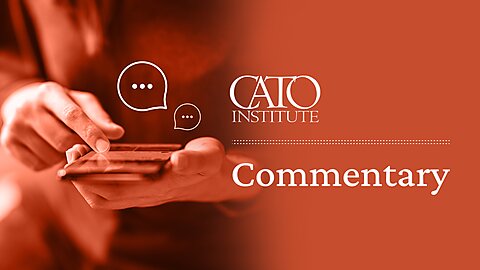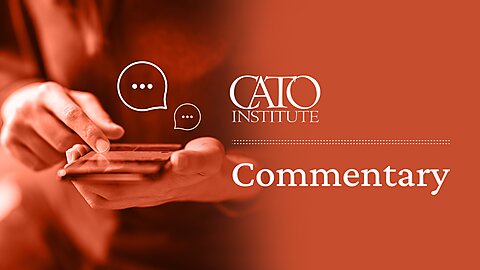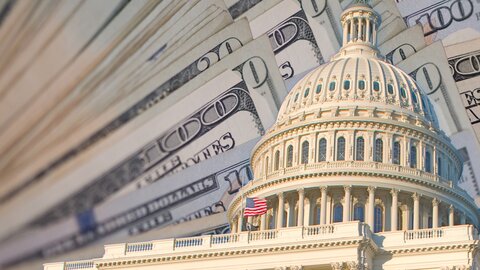
Trump’s Immunity Claims Aren’t Likely To Let Him Escape Accountability
Before the U.S. Court of Appeals for the D.C. Circuit this week, Donald Trump is arguing sweeping claims of immunity from prosecution for acts he committed as president. The case raises questions of whether and when high officials may be held accountable for crimes they commit, to what extent an exception should be made for the office of the presidency, and where the line should be drawn between acts an officeholder may take in execution of his prescribed duties and those he may take in a private capacity. Here’s a brief overview.
Trump, as we know, is charged with having violated four federal statutes in his efforts to stay in office notwithstanding his 2020 defeat at the polls. He moved to throw out the case on the grounds of purported immunity, Judge Tanya Chutkan of the district court rejected his claims, and Trump is now appealing that ruling.
Surprisingly or not, the Supreme Court has never previously ruled on the claim of a president to be immune from prosecution for criminal conduct in office. It did rule in the 1982 whistleblower‐firing case Nixon v. Fitzgerald that former presidents are immune from civil lawsuits over the carrying out of their official duties. Trump’s lawyers now urge the courts to extend that precedent from the civil context to that of criminal prosecution.
The Fitzgerald court worried that exposure to tort‐style liability might chill presidents’ willingness to act decisively in the exercise of their official duties, as well as burden them with a profusion of complaints after their return to private life. It also considered that alternative remedies were typically available to individuals aggrieved by White House action. Whistleblower Ernest Fitzgerald, for example, could and did pursue claims against lower‐level federal functionaries over his firing.
Presidential immunity has long occasioned an ideological divide at the high court, with the conservative wing generally friendlier toward it than the liberals. Fitzgerald itself generated a 5–4 split, with Justices Byron White, Harry Blackmun, William Brennan, and Thurgood Marshall warning that the majority’s logic could leave the President above the law.
*
In addition, Trump is advancing a second, long‐shot pair of immunity theories based on his acquittal on impeachment charges by the U.S. Senate in February 2021, after he had left office. (57 of 100 senators voted to convict, short of the two‐thirds needed.) He now argues that the acquittal must bar further prosecution.
Part of his argument nods toward the idea of double jeopardy, an analogy so weak I doubt it will convince a single judge. (There’s a lot of precedent on what counts as double jeopardy and what doesn’t, and it’s very unlikely that this is it; it’s kind of like arguing that if you persuaded your government colleagues not to fire you over misconduct on the job, you also can’t be prosecuted for it.) It’s especially jarring in this case, in which nearly all the 43 senators who took Trump’s side cited reasons for their vote other than factual innocence, notably doubts as to whether senators could properly impeach an official who was already out of office. Sen. Majority Leader Mitch McConnell (R‑KY), for one, specifically said he expected the criminal justice system to sort out Trump’s misconduct.
Trump’s lawyers also cite a more colorable but still far‐fetched theory based on the Constitution’s Impeachment Judgment Clause, which provides that the effects of Senate conviction do not extend beyond removal from office and disqualification, “but the Party convicted shall nevertheless be liable and subject to Indictment, Trial, Judgment and Punishment, according to Law.” They claim that by negative implication this language must also mean that an official not so convicted may not be subject to later criminal process. This is highly implausible for many reasons, one of which is that the federal government has long prosecuted errant officeholders who weren’t impeached first even when they had held impeachable offices (see, e.g., pp. 7–9).
*
Given the composition of the U.S. Supreme Court, it would not be surprising if the Fitzgerald analogy attains traction with some justices there, even conceivably a majority. And yet a win on this front might not in the end be of much practical use to Trump. That’s because, as he himself concedes (see p. 26), it is uncontroversial that a former President can remain criminally accountable for unofficial conduct; that is, conduct going beyond the exercise of the prescribed duties of the presidency.
Courts, I suspect, are likely to view with favor the proposition that most or all of the lawbreaking alleged in the indictment was taken in Trump’s capacity as a candidate for a second term, as when he asked Georgia Secretary of State Brad Raffensperger to “find” him 11,780 votes, or when he helped organize teams of pretend electors to file papers holding themselves out as genuine.
Last month, in the context of a civil suit over Jan. 6, a cross‐ideological panel of the D.C. Circuit ruled on what is effectively this same point. It found that Trump’s speech to the White House crowd on that day was made as an “office‐seeker, not office‐holder” and, not being “in furtherance of a presidential function,” did not enjoy immunity under Fitzgerald itself. Assuming this ruling stands, it signals that even a favorable ruling from the Supreme Court on extending Fitzgerald would still not extricate the former president from his legal jeopardy.
Even the most extravagant boosters of the imperial presidency seldom dare to argue for the absolute‐monarchy premise that supposes the holder of the office is legally untouchable, even for crimes he may commit in a private capacity – say, as a participant in a road‐rage incident, a jealous spouse, or, as here, someone restless and ambitious to remain in an office he has lost in a free election. And that implies that the courts are unlikely to interpret immunity doctrines in such a way as to excuse Trump from accountability.



